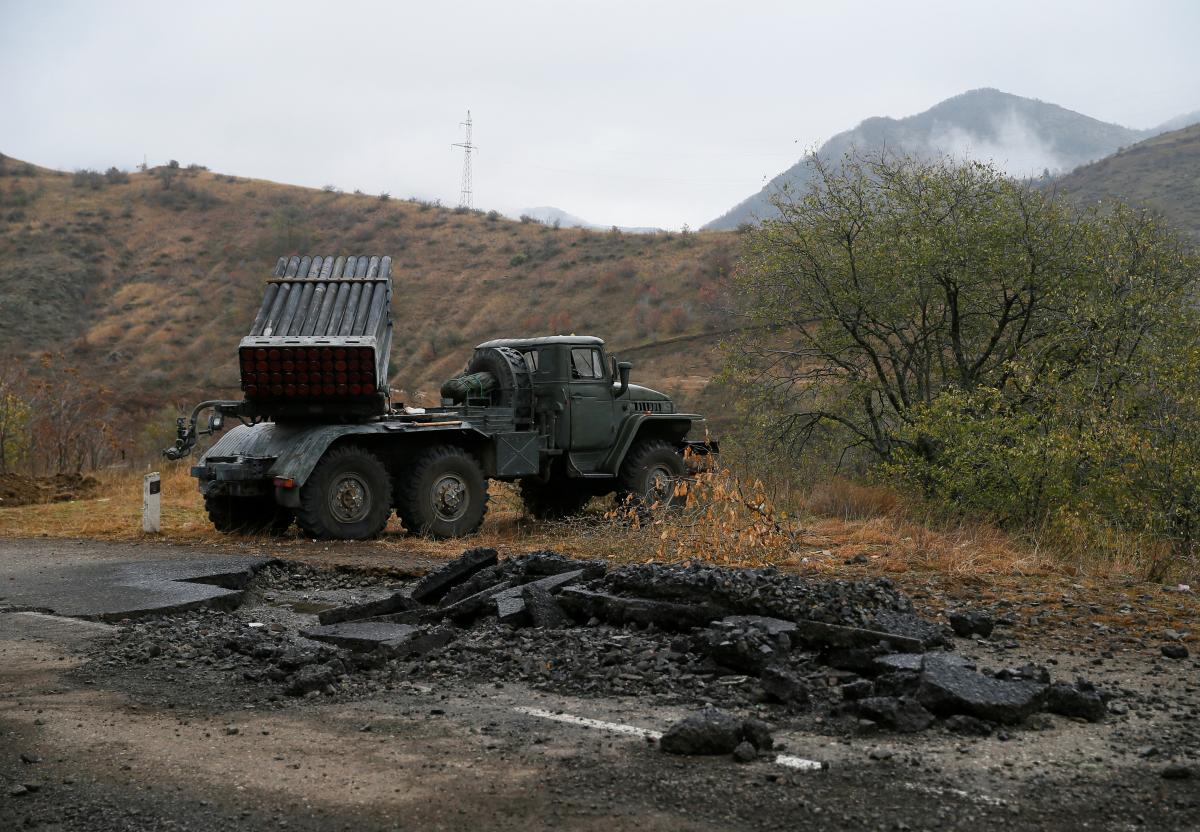
Armenia has accused Baku of violating a ceasefire agreement in the conflict over Azerbaijan's Nagorno-Karabakh region.
Armenia's Defense Ministry said Azerbaijani forces attacked positions held by ethnic Armenian forces, the so-called Karabakh Defense Army, in Nagorno-Karabakh in the southern Hadrut district on December 12, RFE/RL wrote.
Azerbaijan's Defense Ministry issued a statement accusing the Armenian military of staging a "provocation" and insisted that the ceasefire agreement was holding.
Karabakh Defense Army officials said three of its fighters were wounded in clashes on December 11.
Russian peacekeepers monitoring the ceasefire agreement acknowledged violations in Hadrut on both days, but did not assign blame.
"Small-arms shooting was recorded in the Hadrut district," a spokesman for the peacekeeping force told journalists. "Through direct communications lines, the sides were promptly informed of our demand to completely observe the cease-fire regime."
Read alsoTurkish parliament greenlights deployment of observer troops to KarabakhAzerbaijani President Ilham Aliyev said the December 11 incident was a "terrorist attack" committed by "either Armenian gunmen or what is left of the Armenian Army" in Nagorno-Karabakh.
Nagorno-Karabakh belongs to Azerbaijan, but it and some surrounding areas have been de facto controlled by Armenia-backed ethnic Armenian forces for decades. In September, Azerbaijan launched a military campaign that enabled Baku to regain control of large parts of the territory.
In November, a Russia-brokered ceasefire agreement was reached, and some 2,000 Russian peacekeeping forces have been deployed to the conflict zone.
Peace talks on the conflict have been coordinated by the Minsk Group of the Organization for Security and Cooperation in Europe (OSCE). French co-Chairman Stephane Visconti said in Baku on December 12 that Minsk Group mediators were ready to continue working toward a long-term settlement.
"We are ready to work on your proposals and look for an acceptable option for the sides," Visconti told Aliyev.
Visconti added that the recent developments had produced "an absolutely new situation" in the region, "which could bring about stability."
Nagorno-Karabakh war: History
- The conflict between Azerbaijan and Armenia over the Nagorno-Karabakh region began in 1988, when the predominantly Armenian-populated Nagorno-Karabakh Autonomous Oblast announced its withdrawal from the Azerbaijan Soviet Socialist Republic.
- In 1991-1994, the bloodshed conflict continued in the region, which ended with the signing of a ceasefire protocol. Nagorno-Karabakh proclaimed itself an independent "republic." Azerbaijan did not recognize this, considering the territory to have been occupied by Armenia.
- In 1994, the Bishkek Protocol on the ceasefire was signed between Armenia and Nagorno-Karabakh on the one hand and Azerbaijan on the other. However, armed conflicts continued along the line of contact.
- In April 2016, the situation escalated when Azerbaijan and Armenia accused each other of violating the ceasefire. Then, as a result of the shooting at the border, at least several dozen people were killed.

